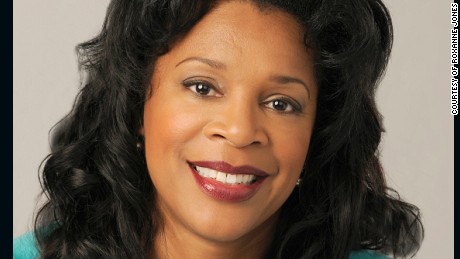Today, I'm certain they are not saying those things about the talented 49er linebacker Chris Borland, the latest NFLer to quit. He's 24 years old and the first player to retire directly because he wanted to avoid the traumatic brain injuries that have been linked to playing football. Borland played just one NFL season.
"I just honestly want to do what's best for my health," he told ESPN's "Outside the Lines." "From what I've researched and what I've experienced, I don't think it's worth the risk."
He added: "I just thought to myself, 'What am I doing? Is this how I'm going to live my adult life, banging my head, especially with what I've learned and knew about the dangers?' "
His teammate, Pro Bowl linebacker Patrick Willis, made the decision to walk away last week, and you can't help but think his decision might have influenced Borland. Willis says he isn't really sure what he'll do next, but he knows he won't play another game in the National Football League. Although fans around the globe are begging the 30-year-old, seven-time Pro Bowler to "unretire," Willis said his nagging foot and ankle injuries, and a desire for a happy life are why he walked away.
"I have no regrets," said a tearful Willis in his press conference last week. "I gave this game everything I had and I am truly blessed. ... Honestly, I pay attention to guys when they're finished playing, walking around like they've got no hips and they can't play with their kids. They can barely walk.
"People see that and they feel sorry,"
Willis said. "But they don't realize it's because he played a few extra years."
Willis, who has a degree in criminology from Ole Miss, is a wise man. And while many sports fans are in shock that any guy lucky enough to play in the NFL would just walk away from fame and wealth, it sounds to me like Willis has his priorities right. It's refreshing.
And Willis is not alone. At a time of year when most football fans are consumed by trade rumors and free agency moves, several other high-profile players have decided to hang up their cleats. And
what's surprising is how young they are:
At 27, Steelers linebacker Jason Worilds was soon to step into the crazy world of free agency, where he was sure to be in demand by many teams. It looked like he was just about to get his huge payday. But instead, he's leaving the game.
Unlike Willis, Worilds hadn't been plagued by injuries, at least not yet. And he'd only missed one game in the past three seasons. So why did he leave? He wants to do other things, he said.
Tennessee Titans quarterback Jake Locker, 26, announced he's also retiring after just four seasons. Another Pro Bowler who had been haunted by injuries, running back Maurice Jones-Drew, 29, called it quits in Oakland recently. He lasted nine years. Young, intelligent and charismatic, "MJD" was adored by fans until, like so many other elite players, he was slowed down by injuries.
Jones-Drew, whom I worked with a lot when he was starting out in the league, is a smart and personable guy. It was clear when I met him that he was talented enough to succeed at anything he pursued.
"Football has been a central part of my life for the past 24 years," Jones-Drew
wrote when announcing his retirement on Twitter. "But now I'm excited about and looking forward to the next chapter of my life."
Who knows, maybe MJD is the next Michael Strahan? That former New York Giant's successful exit from football has inspired so many younger players. Strahan's path has empowered others to value themselves beyond football. Every season, I get calls from NFLers who want my help finding a career after football. "How do I do what Mike did; that's what I want to do," they say.
Once dubbed the "sack master," Strahan has transformed himself into such a daytime TV media darling you would think he was born to co-host ABC's "Live With Kelly & Michael." But even he had to decide when to quit the game before it got the best of him. It took 15 years. I will never forget how hobbled Strahan looked one early morning when an ESPN crew showed up at his door to do a "day-in-life" story on his off day. Bruised and still bloody that morning, he could barely get out of bed.
Usually loquacious, he had trouble even talking because his swollen jaw was locked shut. He couldn't even brush his teeth properly. Shave? Forget it: hands too gnarly. And it was clear he had a severe migraine working his brain. There were very few laughs that day. Strahan was barely 30 then, and he looked like a defeated, old man. Now, every time I see him smiling for the cameras, I think how blessed he is to be healthy and enjoying his life after football.
So maybe there is another way out for young players who are now better informed about the dangers of the game. Just maybe all the debates about the ugly side of football -- concussions, brain injuries, depression and suicides-- have done some good, after all.
Today, a guy like Patrick Willis can walk away from the game a happy man:
"If I want to go fishing tomorrow, I'm going to go fishing. ... If I want to go home and watch my little brother play baseball, I can go to do that. ... Life is amazing right now."

















































